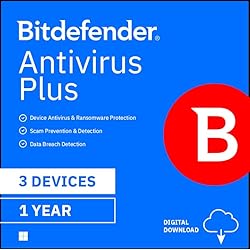The Risks of Using Pirated Antivirus Software: What You Need to Know
Using pirated antivirus software poses significant risks to your cybersecurity, personal privacy, and the stability of your digital devices. As cyber threats become increasingly sophisticated, it’s critical for individuals and small businesses alike to understand the dangers associated with counterfeit or illegally obtained security tools. This article explores why pirated antivirus can do more harm than good, and offers actionable advice to ensure robust protection in today’s interconnected world.
Why Pirated Antivirus Software Is a Serious Cybersecurity Threat
The prevalence of pirated antivirus software is rooted in the desire to save money, but this shortcut can open the door to devastating consequences. Cybercriminals often disguise malware as legitimate security programs, luring users with promises of free protection. Instead, these counterfeit solutions compromise data, degrade device performance, and invite further attacks.
H2: How Pirated Antivirus Software Puts Your Devices and Data at Risk
Pirated security software not only fails to provide genuine protection but can actively undermine your cybersecurity efforts. Understanding the specific dangers is essential for making informed decisions about your digital safety.
H3: Concealed Malware and Backdoors
The most immediate danger of pirated antivirus software is the potential for embedded malware. Counterfeit programs may be rigged with trojans, spyware, or ransomware, granting attackers covert access to your system. For instance, a fake antivirus installer downloaded from a torrent site could silently install a keylogger, capturing everything you type—including passwords and banking credentials.
H3: Lack of Security Updates and Support
Legitimate antivirus vendors provide ongoing security updates to counter evolving threats. With pirated versions, access to automatic updates is often blocked. This leaves your device unprotected against new malware strains or vulnerabilities. Furthermore, technical support is unavailable for unauthorized users, so if your system becomes infected or compromised, there is no reliable assistance.
H3: Data Theft and Privacy Violations
Pirated antivirus solutions may collect personal data and transmit it to threat actors without your consent. Sensitive files, credit card details, emails, and even webcam footage can be quietly exfiltrated, leading to identity theft or financial losses. In many documented cases, victims have discovered that their computers were part of botnets orchestrated by criminals who leveraged the very security tools meant to protect them.
H2: Impact on Small Businesses and Professionals
For small businesses and freelancers, the cost of cybersecurity incidents can be catastrophic. Using unauthorized security solutions can expose not only your own data but also the confidential information of clients and partners.
H3: Compromised Business Reputation
A breach caused by pirated antivirus software can damage your credibility and erode client trust. News of data leaks, ransomware attacks, or botnet involvement spreads quickly, potentially resulting in lost customers and legal repercussions.
H3: Legal Consequences
Software piracy itself is illegal and can lead to fines, lawsuits, or criminal charges. For businesses, using unlicensed security software may also violate industry compliance standards (such as GDPR or HIPAA), resulting in even steeper penalties.
H2: Why Free Is Not Always Safe—Alternatives to Pirated Antivirus
If budget constraints are motivating the use of pirated software, consider legitimate alternatives that offer strong protection at no cost.
H3: Reputable Free Antivirus Solutions
Many respected cybersecurity companies provide free versions of their antivirus software. These options deliver core protection against common threats and are regularly updated. Examples include Avast Free Antivirus, Bitdefender Antivirus Free Edition, and Sophos Home Free.
H3: Additional Security Practices
No antivirus, free or paid, offers complete immunity to cyber threats. Combine reputable antivirus with safe online habits, such as regular software updates, using strong passwords, and avoiding suspicious email attachments or downloads.
FAQs About the Risks of Using Pirated Antivirus Software
Q1: Why is pirated antivirus software dangerous?
A: Pirated antivirus software often contains hidden malware, lacks essential updates, and can expose your personal data to cybercriminals, making it highly risky.
Q2: Can pirated antivirus programs actually protect my computer?
A: No, pirated antivirus programs cannot guarantee real protection and frequently fail to detect or remove active threats due to disabled updates and tampered code.
Q3: How can I tell if my antivirus software is pirated?
A: Signs include difficulty activating the software, blocked updates, missing features, spelling errors, or being prompted to disable security settings.
Q4: What are safer alternatives to pirated antivirus solutions?
A: Use free versions from reputable vendors like Avast, Bitdefender, or Sophos, or consider affordable subscription-based protection.
Q5: What legal risks come with using pirated antivirus software?
A: Using pirated software violates copyright laws, leading to potential lawsuits, fines, and business compliance issues.
Q6: Can businesses be compromised by a single device running pirated antivirus?
A: Yes, one infected device can compromise network security, leak sensitive data, and damage the organization’s reputation.
Summary and Final Advice
Pirated antivirus software is a false economy that invites far greater risks than it promises to solve. Rather than reducing your cybersecurity costs, it exposes you to malware, data breaches, legal issues, and a loss of trust among clients and stakeholders. Always opt for legitimate antivirus solutions—many of which offer free, reliable protection—and supplement them with robust security habits. Remember, genuine security is never worth compromising for a shortcut.
Practical Takeaway:
Protect your data, devices, and reputation by steering clear of pirated antivirus software. Invest time in choosing officially licensed protection and empower yourself with knowledge to stay secure in the digital age.


